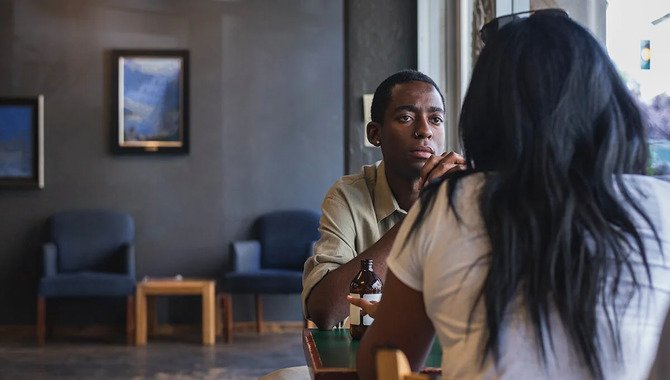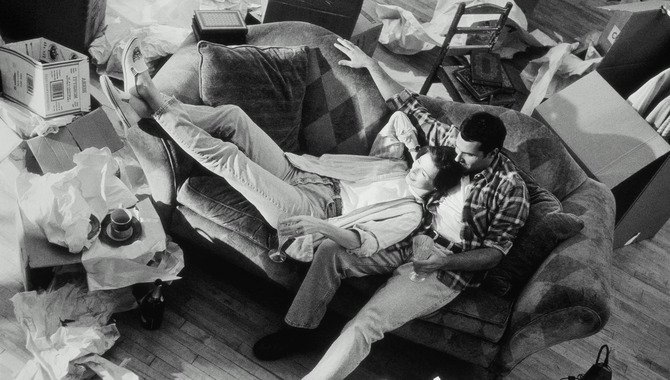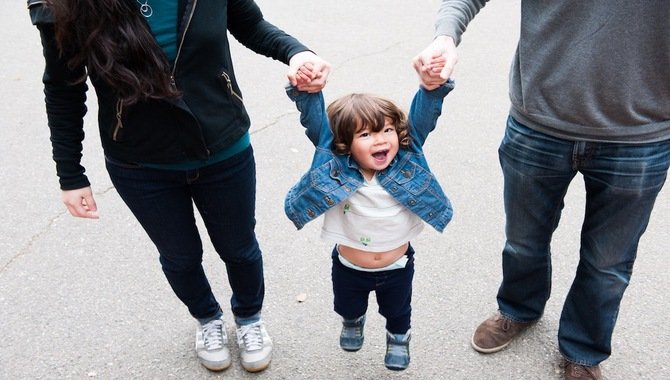The role of trust and vulnerability is essential in building strong relationships.When it comes to building strong relationships, trust and vulnerability play a vital role.
Trust is the foundation of any relationship and without it, relationships would crumble. In order for trust to develop, both parties need to be open and honest with each other. This requires vulnerability, as it can be difficult to share our true thoughts and feelings with someone else. However, it is only through vulnerability that we can develop a deep connection with another person.
Without trust, we would constantly be on guard, always wondering if we can truly rely on the other person. This would make it difficult to relax and enjoy the relationship. In order for trust to develop, we need to feel safe enough to be vulnerable with the other person. This means sharing our hopes, dreams, and fears. It can be scary to open up like this, but it is essential for developing a strong bond with someone.
Vulnerability also allows us to see the other person for who they really are. When we are open and honest with each other, we can get past any surface level differences and connect on a deeper level. We all have flaws and by being vulnerable with each other, we can accept each other for who we are.
Trust and vulnerability are essential for any relationship to thrive. Without these two things, relationships would be difficult and unfulfilling. If you want to build a strong, lasting relationship with someone, start by being open and honest with them. It may be scary at

What Is The Role Of Trust And Vulnerability In Building Strong Relationships?

The role of trust in building strong relationships is essential. When it comes to relationships, trust is everything. It’s the foundation that all healthy relationships are built on and without it, relationships will crumble.
Trust is what allows us to feel safe in a relationship. It’s what allows us to be vulnerable and open up to someone. When we trust someone, we know that they won’t take advantage of us or hurt us.
Trust also allows relationships to grow and flourish. When we trust someone, we’re more likely to confide in them and share important parts of ourselves. This deep level of communication is what allows relationships to become strong and lasting.
How Do You Build Trust In A Relationship?

It starts with being honest and transparent with each other. It means being open and sharing your thoughts and feelings. It means being reliable and consistent in your words and actions.
It takes time to build trust, but it’s so worth it. When you have trust in a relationship, you have something special and truly special.
How Important Is Vulnerability In Developing Trust?

This is a question that I am often asked, and it is one that I feel is important to address. In order to build trust, we must first be vulnerable. Vulnerability is the quality of being open to attack or injury. It is a key ingredient in the development of trust because it allows us to be seen and known for who we are.
Think about a time when you
Were Not Vulnerable With Someone. How Did That Feel?

The difference between these two experiences is stark. When we are vulnerable, we are open and honest. We feel like we can trust the other person. But when we are not vulnerable, we are guarded and reserved. We don’t feel like we can trust the other person.
Why Is Vulnerability So Important In Developing Trust?

Vulnerability is important because it allows us to be seen and known for who we are. It gives the other person the opportunity to know us, and it allows us to build trust with them.
Think about it this way: If you are not vulnerable with someone, they will never really know you. They will only know the surface level version of you. But if you are vulnerable with someone, they will get to know the real you. They will know your fears, your hopes, and your dreams. They will know the things that make you happy and the things that make you sad.
When you are vulnerable with someone, you are giving them the opportunity to know you. And when you give someone the opportunity to know you, you are also giving them the opportunity to trust you.
Can Trust Be Developed Without Vulnerability?

No.
When it comes to trust, we often think that it has to be earned through taking r
Isks And Being Vulnerable With Others. But Is That Always The Case? Can Trust Be Developed Without Vulnerability?

It’s important to understand the different types of trust before we answer this question. There’s conditional trust, which is based on someone meeting our expectations, and there’s unconditional trust, which is based on our faith in someone or something.
Most of us are more familiar with conditional trust because it’s what we experience in most of our relationships. We trust our friends to be there for us, but only if they don’t let us down. We trust our partners to be faithful, but only if they don’t give us a reason to doubt them.
Unconditional trust is different. It’s not based on anything that the other person does or doesn’t do. Instead, it’s a decision that we make to trust someone, even when there’s no guarantee that they won’t let us down.
So,
Can Trust Be Developed Without Vulnerability?

It depends on the type of trust. Conditional trust requires vulnerability because it’s based on our expectations of others. But unconditional trust doesn’t require vulnerability because it’s not based on anything that the other person does or doesn’t do.
Let’s say you have a friend who you’ve known for years. You’ve never had any reason to doubt their loyalty or friendship. Even though you’ve never been vulnerable with them, you trust them completely. That’s an example of unconditional trust.
On the other hand, let’s say you have a new friend who you’ve only known for a few weeks. You don’t know them very well yet, so you’re not sure if you can trust them. In this case, you might be more hesitant to share your feelings or thoughts with them because you’re not sure if they’ll understand or support you. This is an example of conditional trust.
Both types of trust are important in our lives. But if we want to develop trust without vulnerability, we need to focus on unconditional trust. This is the type of trust that doesn’t require us to take any risks. We can simply decide to trust someone, even if we don’t know them very well.
One way to do this is to look for signs that the other person is trustworthy. For example, you might notice that they’re always honest with you or that they’re always there for you when you need them. These are good indicators that you can trust them, even if you haven’t been vulnerable with them yet.
Of course, there’s always a risk that someone will let us down, even if we trust them. But that’s a risk we’re willing to take when we trust someone unconditionally. We believe that the good outweighs the bad and that the relationship is worth the risk.
So,
Can Trust Be Developed Without Vulnerability?

Yes, it can. But it’s important to understand the different types of trust before we answer this question. Unconditional trust doesn’t require vulnerability because it’s not based on anything that the other person does or doesn’t do.
How Does Trust Impact The Strength Of A Relationship?

The stronger the trust, the stronger the relationship.
It’s no secret that trust is the foundation of any strong relationship. After all,
Why Would You Want to Be With Someone You Didn’t Trust?
But what you may not realize is just how much trust impacts the strength of your relationship.
Here are a few ways trust affects your relationship:
-
Trust Allows You to Be Vulnerable
If you don’t trust your partner, you’re not going to be comfortable being vulnerable with them. This means you’re likely to hold back when it comes to sharing your feelings, thoughts, and experiences. As a result, you’re not able to fully connect with your partner on a emotional level.
-
Trust Builds Intimacy
Intimacy requires both physical and emotional closeness. If you’re not able to be emotionally intimate with your partner, the physical intimacy is going to suffer as well. This is because the physical closeness is often a reflection of the emotional closeness.
-
Trust Increases Communication
When you trust your partner, you’re more likely to communicate openly with them. This means you’re more likely to share your thoughts, feelings, and experiences with them. In turn, this open communication leads to a deeper level of understanding between you and your partner.
-
Trust Leads to Greater Commitment
If you trust your partner, you’re more likely to be committed to the relationship. This is because trust is essential for feeling secure in a relationship. When you feel secure, you’re more likely to invest your time and energy into the relationship.
-
Trust Creates a Sense of Safety
When you trust your partner, you feel safe with them. This sense of safety allows you to relax and be yourself. As a result, you’re able to build a deeper, more meaningful relationship.
Trust is essential for any strong relationship. If you want your relationship to thrive, it’s important to create a foundation of trust.
FAQs:
1.What Are The Consequences Of A Lack Of Trust In A Relationship?
Ans. If there is a lack of trust in a relationship, it can lead to many problems. These can include things like communication breakdown, feeling insecure and jealous, and a loss of intimacy. Trust is a very important part of any relationship, and without it, the relationship can suffer greatly.
2.How Can Vulnerability Be Used To Build Trust?
Ans. Vulnerability is often seen as a weakness, but it can also be used as a strength. When we are vulnerable, we are letting others see our true selves. We are also showing that we trust them enough to be open with them. This can be a powerful way to build trust.
3.What Are The Benefits Of Trust In A Relationship?
Ans. The benefits of trust in a relationship are that it can help to create a stronger bond between the two people, and it can help to make the relationship more stable and reliable. Trust can also help to prevent arguments and disagreements from happening, as well as help to resolve them more quickly when they do occur.
4.How Does Trust Contribute To The Overall Strength Of A Relationship?
Ans. Trust is the foundation of any good relationship. It allows us to feel safe and secure with someone, and it gives us the ability to be vulnerable with them. Without trust, we would never be able to truly connect with another person.
Conclusion
Hopefully, you are clear on the role of trust and vulnerability in building strong relationships. If you still have any questions, feel free to comment below.

